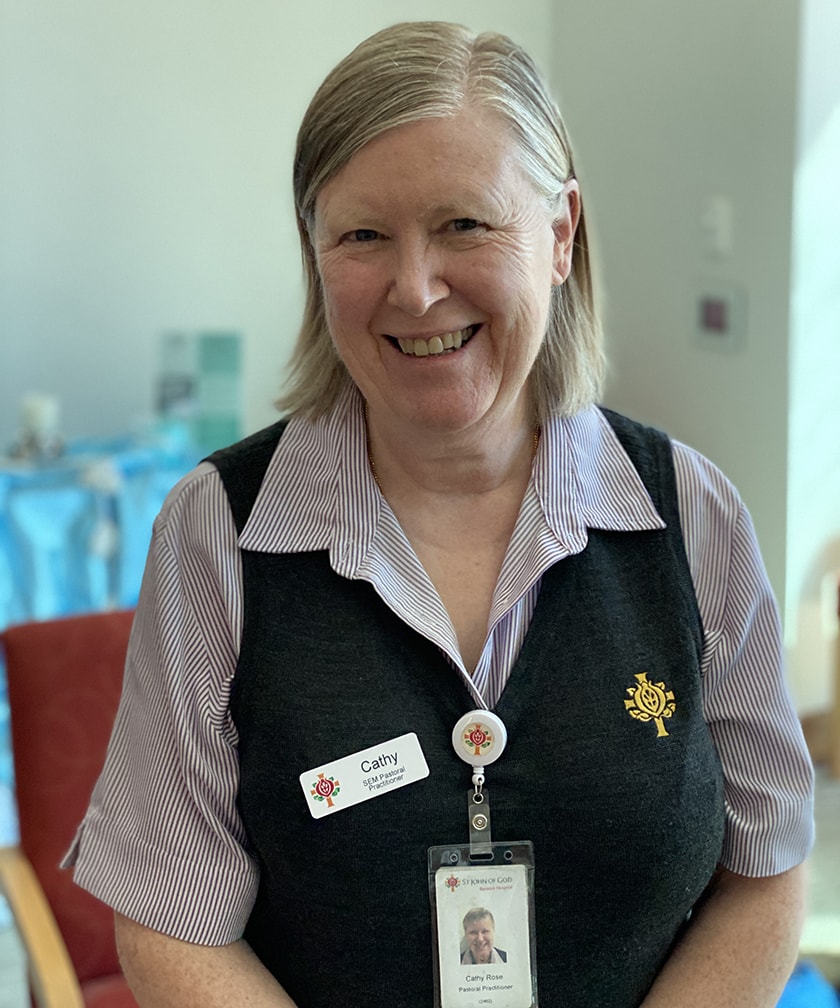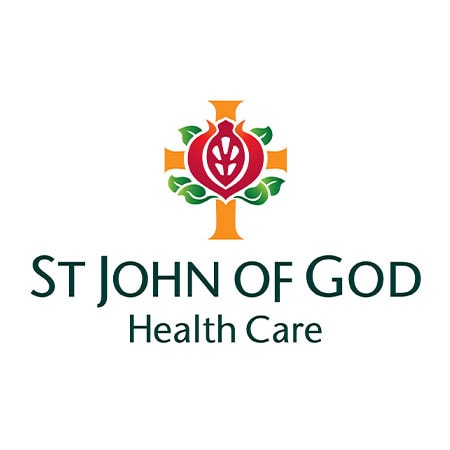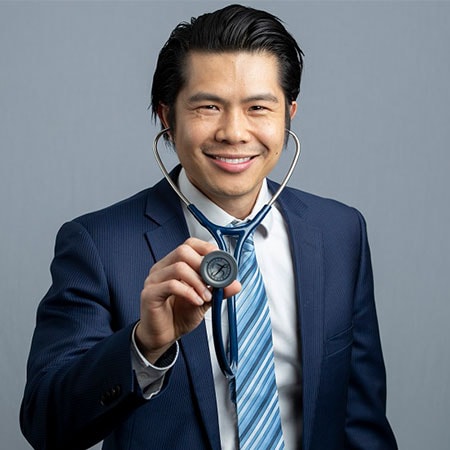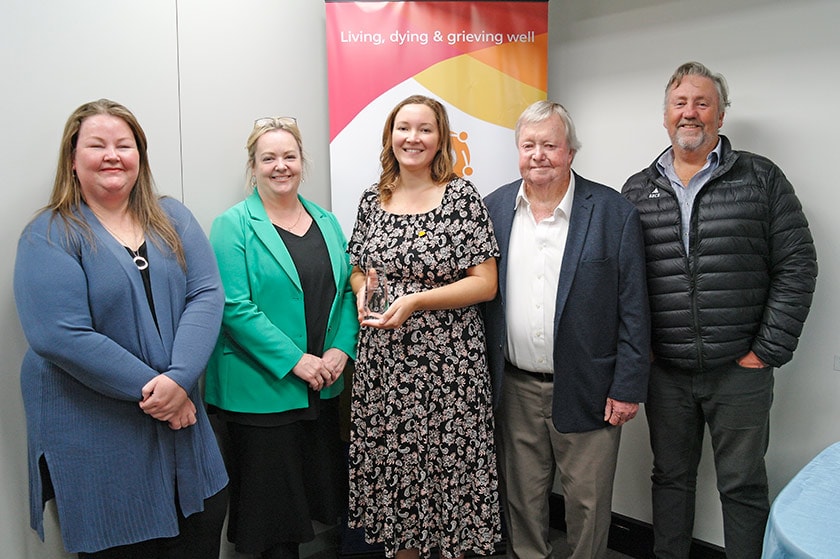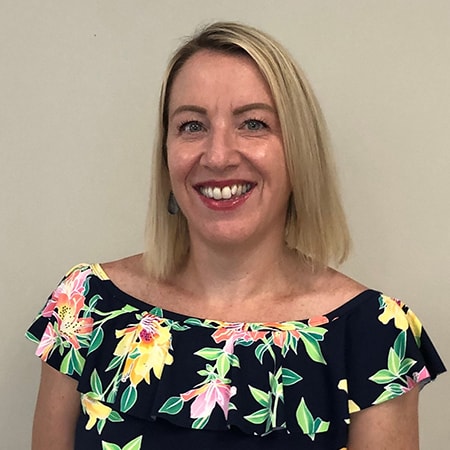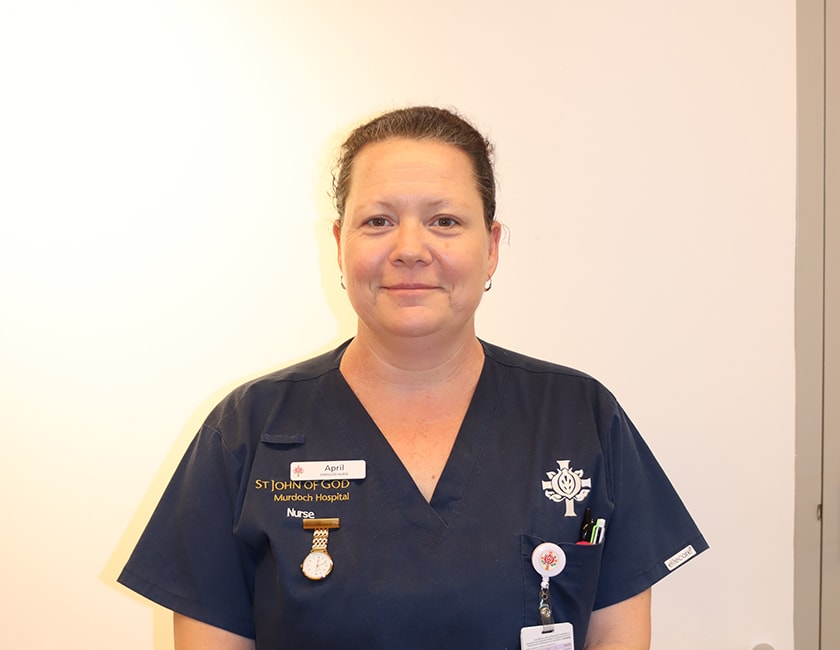What do you enjoy about your job?
I am very privileged to be working as a pastoral practitioner at St John of God Health Care South East Melbourne Hospitals; this really is my dream job. I started my career as an oncology/palliative care nurse. I realised then that I really enjoyed working with patients and families at a deep, personal level, and that I was really good at listening. It was often frustrating that, as a nurse, I often did not have the time to spend just sitting and listening to people when they really needed me to.
Fortunately, while studying theology as an interest, I was introduced to CPE (Clinical Pastoral Education) ─ practical training in pastoral care, which eventually brought me to St John of God Health Care South East Melbourne Hospitals. Since then, I have also completed a graduate certificate in bereavement counselling, and as such, I have come to the understanding that a large component of pastoral care is about loss – whether it be death, loss of independence, loss of health, or so on.
Working with palliative patients must be difficult, how do you overcome this aspect of your job?
I know we say it so often that it can become a cliché, but self-care is vitally important. It is mandatory that as a pastoral practitioner that I have professional supervision at least six times a year. Fortunately, the hospital supports this practice. I also know that my boundaries are important, and I have cultivated a practice of leaving my professional worries at work. I think wearing a uniform helps with this – when I change at home, I physically take off work concerns with my clothing.
Debriefing among my work colleagues is vitally important also – not just with my pastoral care workmates, but with the nurses and doctors I work with. I have also found my managers to be approachable and helpful. I try to follow GEM principals at home - Gratitude, Empathy and Mindfulness – however, some days I manage this better than others. Walking the dogs in beautiful scenery, reading a good book, having a massage every two months are some of the ways I care for myself. My faith is also a guiding light for me. It is helpful to know that Employee Assistance Program is always there to support.
An intrinsic part of being in pastoral care is working with people at the end of their lives as well as supporting their families ─ what compelled you to actively seek out a career in this area despite this being a major component to your job?
It is because you engage and assist people and their families, at such a vulnerable time. Of course it is incredibly sad, and sometimes you cannot do anything to physically help, but often just by being with them, being totally present with someone makes all the difference. Even though we avoid thinking about it, we are all going to die someday, and assisting people to ‘die well’ is addressing a basic human need. When people die at peace, or you and the team are able to contribute to the alleviation of some degree of emotional or spiritual distress, it is absolutely rewarding. I also find the people who work in this field to be kind, compassionate, and fun loving people. Ideal workmates to have.
What do you like most/least about your job?
I think I have articulated what I absolutely love about my job. What I dislike about my job is a more difficult question. I think it is the assumption that pastoral care is all about religion, and I have a secret agenda. Pastoral care is emotional and spiritual care, and the aim is to discern what is meaningful and important to the patient and families. Religion only becomes a focus if the person I am with wants to discuss it. Sometimes religion can provide hope, sometimes however, it may make people fearful – people need to feel free to discuss anything. We are all imbued with some kind of spirituality, not necessarily religious – it is what makes our lives mean something.
What is something you have learned from working with palliative care patients?
I am always learning from my patients – no two of us are alike. I like to be curious, and interested in the people I see. I suppose that I have learned that, however strange it might sound, death is not the worst thing that can happen to us. I have shared joy, laughter and serenity with people, and their significant others, at the end stages of their lives. The most important thing is to live a good life, and that a good death is often just the summation of this life well lived.
Has there been an experience you’ve had as a caregiver in palliative care that stands out more than most?
There are always patients who you vividly remember, with whom you develop a close relationship with, with whom you explore both the light and dark places together. Once I visited a patient the day before she died who we had cared for in the Oncology Unit for over five years. I had traversed all fields of emotion with this beautiful woman – from celebration to utter devastation. I was so fortunate to have been able to hear all she had to say – no topics were taboo. She was not ready for death, but I believe I was able to provide some comfort. I was able to hold her hand and hear her say thank you and goodbye. A sacred moment. Needless to say, I needed to practice self-care after this, as did the other caregivers on the unit who knew her well. I have used the word before, but it was indeed a privilege.
Another major misconception in dealing with patients with incurable diseases is that palliative care units/caregivers are about dying when in fact they are more about living, and more importantly, living well – can you share your thoughts on this?
There is a well know Snoopy cartoon where Charlie Brown says reflectively “You know Snoopy, one day we are all going to die”, to which Snoopy relies, “Yes, but on all of the other days we will live”. I agree that palliative care is about living each day as well as we can, and this can lead to a smooth transition to death. However, as I articulated previously, talking about death is often a taboo. It is important to realise that we are all mortal, and there is a time to think about how we would like to die.
This becomes more important as people age, or are faced with a life-limiting illness. Making plans for the provision of palliative care, writing wills, writing advanced care plans and thinking about funerals are often left until it is too late. At a certain age, even when we think we are healthy, it is important to have some plans for our death. Not to dwell on it, but at least briefly consider it. I am personally facing my 60th birthday (yikes), and my husband and children know where my will is, and have some idea what I would like in terms of a funeral. If we could normalise the need for these plans, it would make discussions about end of life decisions much simpler.

